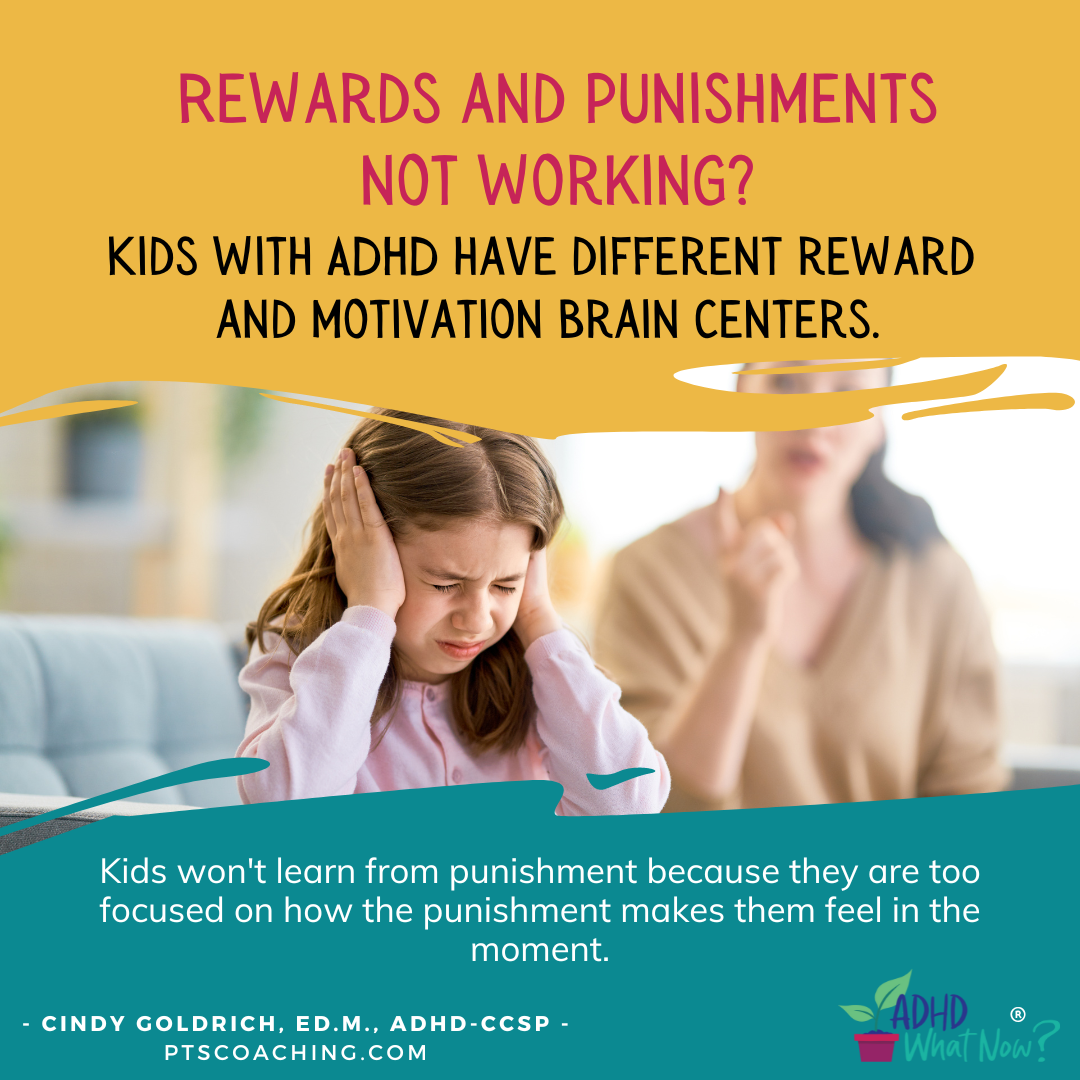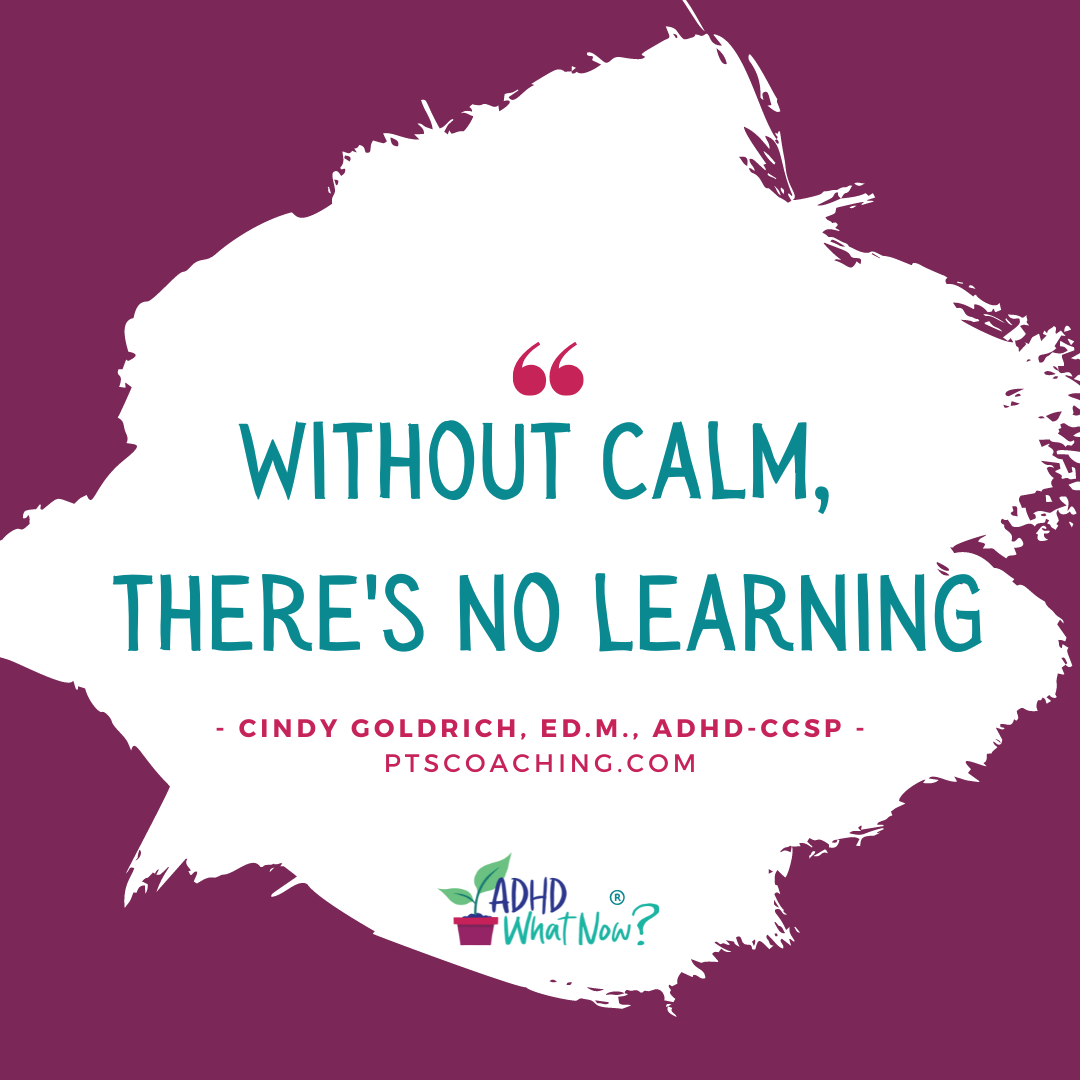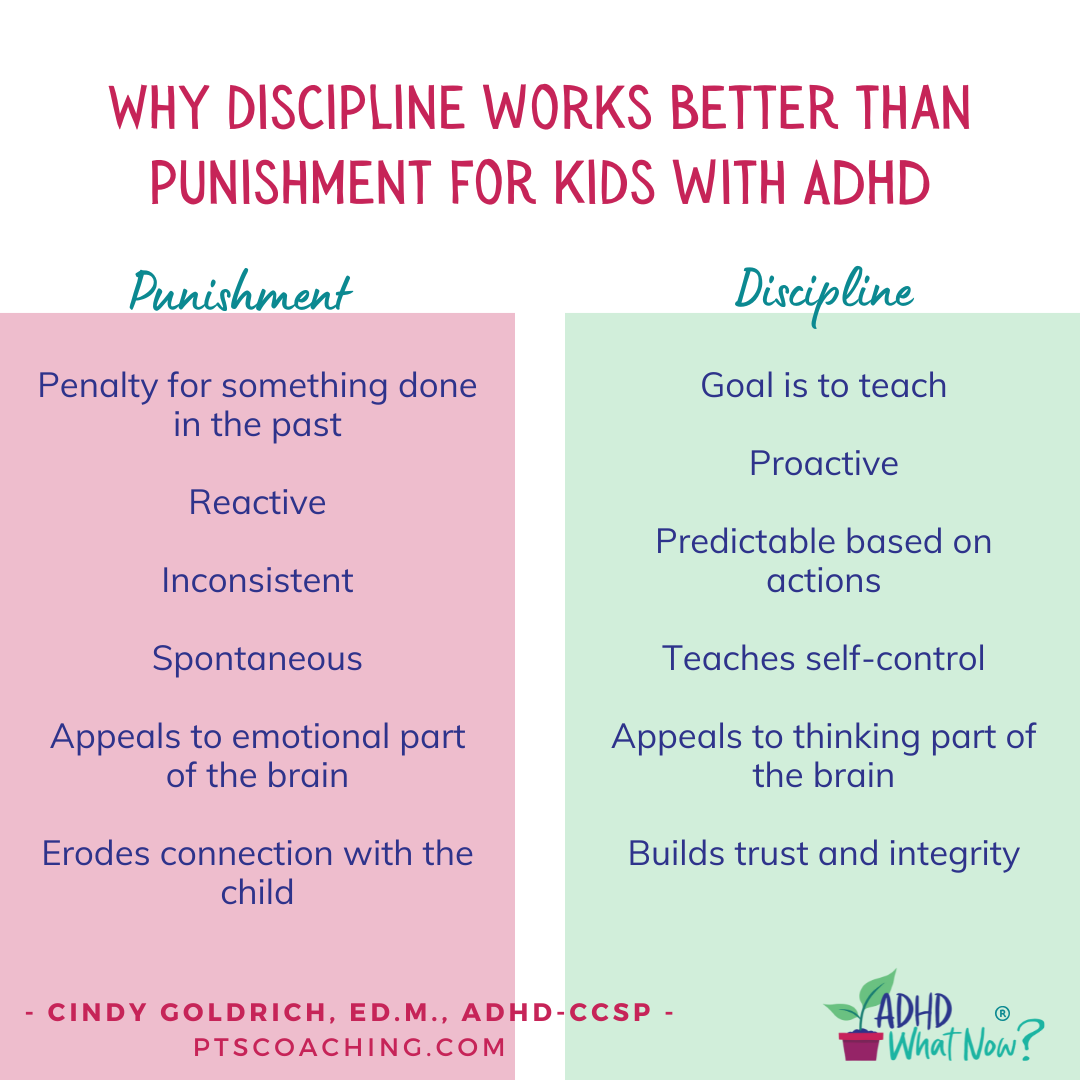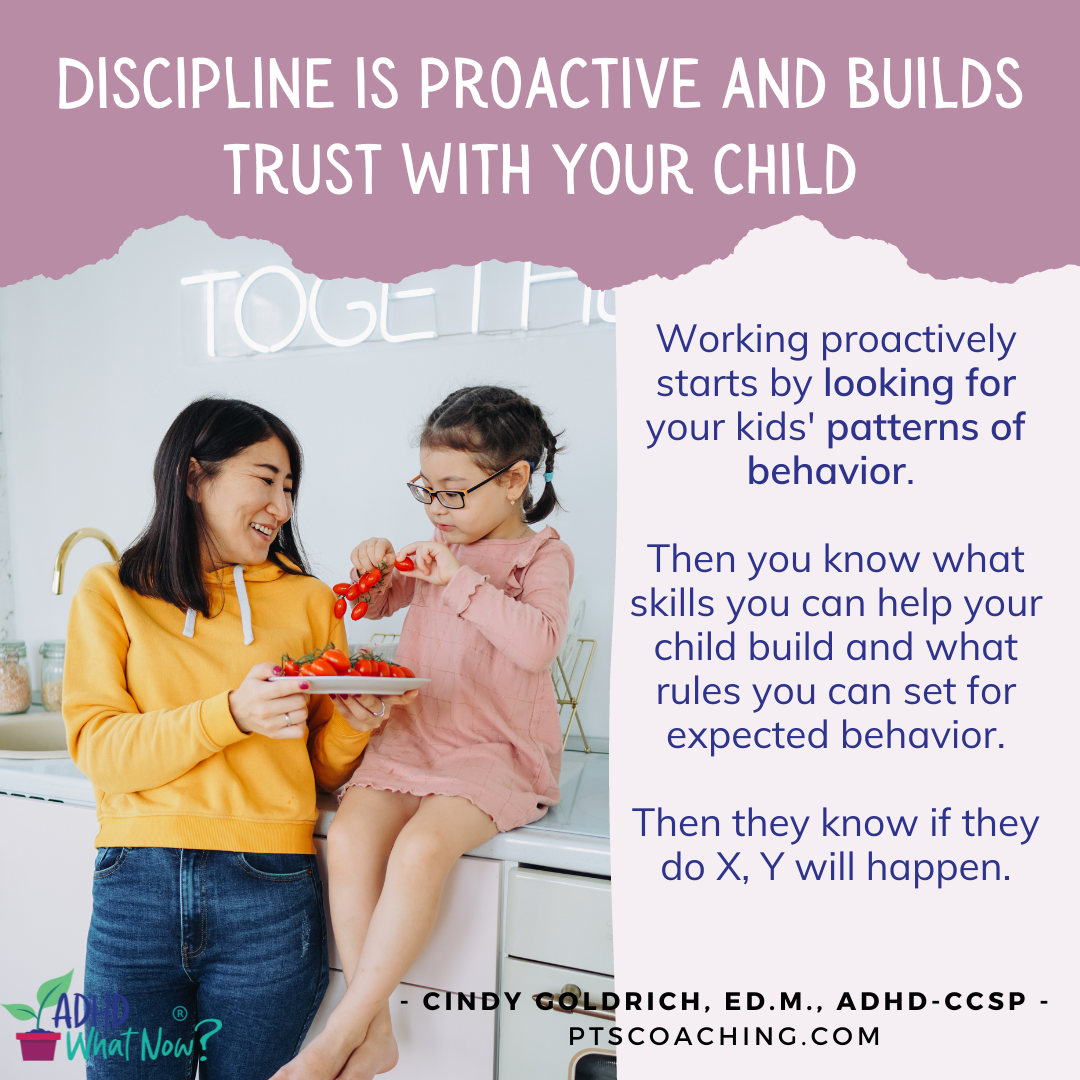Discipline Not Working? What Really Works for Kids with ADHD
May 16, 2023Are you struggling to find the balance between discipline and punishment? Maybe you are feeling like you're more reactive than proactive when it comes to setting rules and boundaries and your kiddo doesn't respond the way you expect them to.
Often, kids with ADHD don't have the same motivation for rewards and punishment as other kids, and the real change comes when we as parents make a shift towards proactive discipline.
In this talk, ADHD coach, Cindy Goldrich shares why discipline is a much better tool for managing our kid's behaviors and how it can help them better understand the boundaries that we set for them while forming a stronger connection with them.
LINKS
Cindy's Website: https://ptscoaching.com/
Shareable Graphics




Full Transcript
Veronica: Have you been trying rewards and consequences with your kid and you have a lot of questions. You're not really sure what the lines are here, and maybe sometimes you've even tried something like, if you do X, then you're not allowed to go to your best friend's birthday party and you're feeling, is that quite right? Or, I don't know if I really wanna follow through on that, but I feel like I have to be consistent. What do I do now?
These are common questions and this idea of rewards and consequences is part of what might be considered a behaviorist approach that is pervasive inside of our society, but doesn't always lead to the most effective results, especially for our kiddos with neurodiversity and with ADHD.
And so instead, there is a different way to look at this, a different mindset on what is the purpose of discipline and when do we talk about rewards or consequences? And when you can do these two things, have this mindset shift and shift when you are having these conversations, then you will feel better and more confident in your parenting and interacting with your kiddo. Your kiddo will experience more success and higher levels of self-esteem, and you as a parent will have a reduction in stress when you're not always questioning yourself.
So dig in and listen to this video with Cindy Goldrich, ADHD coach extraordinaire.
Cindy: When you have ADHD, there are some differences in the brain. And one of the differences is that you have, you have an underactive part of the brain when it comes to reward and motivation centers.
So whereas typical people may get very motivated or concerned if there's a, you know, reward out there dangling like that carrot or even that stick, the person with ADHD, it doesn't activate them in the same way.
I'm not saying that they never get activated, I'm saying it's not in the same way. So what happens is, if you have, I'll use an example based on what you said -- let's say you're shopping with your kid and you know, you're in a clothing area and the kid thinks it'll be fun to play hide and seek, and they go run and they hide under the, you know, under one of the racks and you can't find them.
And then you finally find them and you pull them out and your instinct is, I'm gonna really yell at my kids the next time we're in a store he would never think to do that, right? Like you were saying, like if I embarrass him and everything else, well guess what happens as soon as you yell at that kid?
That kid is probably only thinking about, "I'm so embarrassed, I'm so uncomfortable, she's making such a big scene," and not even hearing anything that you're saying.
Remember what I said, without calm, there's no learning.
So that lesson is really lost. They don't know. And a lot of these kids are so adventurous and so playful, they may not realize which part of what they did wasn't good. So they're generalizing in the wrong direction.
So I believe that now we can talk about like discipline, right? Discipline is very different than punishment. When I think of punishment, I think of a penalty for something you did in the past, right? Where it's reactive. Sometimes it's even inconsistent and spontaneous, like, that's it. I'm canceling your birthday party. I've actually had parents like, tell me that they did that. And then they're like, should I follow through on that? Because if I don't follow through, then I'm inconsistent. But oh my God, I can't believe I said that. Of course I wanna have my kids' birthday party, right?
So punishment is when you're in that, like in that moment and you're just sort of saying something and it's appealing to that emotional part of the brain. Remember I said the brain, the emotional part and that thinking part, it's appealing to that part of the brain that they think they're gonna embarrass the kid and, and you know, torment the kid to the point that the kid will behave differently. And what it's gonna do is it's gonna erode your connection with your child. You know that my belief is calm and connection without that loving, warm connection.
So when you're doing these spontaneous moments of punishment, that's very often what's happening. But discipline is, if you think about the word discipline, right? Disciple. It's to teach, that's what discipline is about. It's teaching and it's proactive. It's predictable based on, you know, the outcome is based on the action and it teaches self-control.
We talk about, you know, I'm very self-disciplined, right? As a source of pride, right? So we want to have discipline in our lives because it's gonna appeal to that thinking part of the brain. Remember the executive function system and it's gonna build trust and integrity.
Your kid knows that, you know, if they do X, this is what's gonna happen. They may not like it, but they're not gonna be as mad at you because you already set that stage. They're the ones that didn't do what they knew they should have done. Does that explanation help?
Veronica: Yeah, yeah it does. So where's a mindset shift that you think a lot of people generally need around this area? Anything additional to add to that?
Cindy: Yeah, the mindset shift is that we have to work more proactively and that's what we help parents do. We help them look for patterns of behavior. And I'm sure many of the parents out there are thinking of patterns of behavior. He always... He never... Or whenever we go there, she... right?
We look at those patterns of behavior and then we step back and we look to understand it and see what skills do I need to help my child build? What awareness, right? What kind of agreement do we have to have on what proper behavior should look like? What kind of agreement can we have on what will happen if they don't behave in such a way?
So that's what I mean where the discipline, it will be proactive. We've already talked about what will happen if we go to Target and you do X, Y, and Z. So that when you know, if we go to Target and you do X, Y, and Z and I give you that consequence, it's not out of the blue. I'm not being, you know, irrational and my child is not, you know, they may be upset.
I'm not saying they're gonna be happy about it, but you know, it's like you knew that was gonna happen. You made a choice.
Veronica: Thank you to Cindy and she is an amazing ADHD coach and educator and educator of educators, especially around ADHD, and has a real passion for making sure that people are understood so they can be supported to live their best life. Definitely encourage you to reach out to Cindy if you might need support from her.
Now, if you would like other simple strategies for full support for your kiddo so that they can live their best life and you can enjoy the journey as a parent, then I'd encourage you to go to WhatNowADHD.com. There you'll find a free resource of those strategies that parents can use for how to set up full support for your kiddo.
Because when 'how' is easy, your precious time and energy can go to actually helping your kiddo and family to flourish.